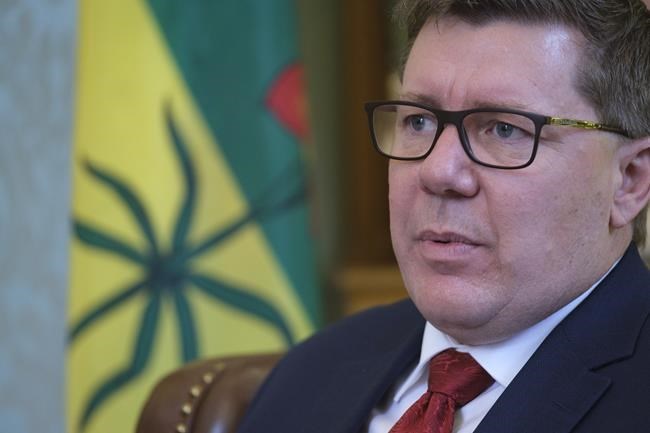REGINA — Saskatchewan Premier Scott Moe says Wednesday's budget will show a boost to the bottom line from higher oil and potash prices and include more funding to help ease the strain COVID-19 put on health care.
Moe said this week that his Saskatchewan Party government will increase spending to address a backlog of surgeries made worse by the pandemic as well as provide money for intensive care capacity, which at times was overwhelmed by waves of infection.
He hinted that the 2022-23 budget will put Saskatchewan back on track following two years of budgets focused on pandemic stimulus and relief.
"We are working back to … balancing the budget in the province," Moe said. "It is a priority for this government."
Saskatchewan's deficit was pushed to a record high $2.7 billion in November and the government stated it wouldn't achieve balanced books until 2026-27. But revenue from non-renewable resources — which accounted for nine per cent of the government's income this year — has increased since Finance Minister Donna Harpauer tabled the current budget last April.
She projected at the time that the average price of West Texas Intermediate crude oil would be US$55 a barrel, but the price has been hovering about double that recently and reached a 13-year high in early March of US$130 a barrel.
Potash prices are also up to about US$392 a metric tonne. Harpauer projected that figure in her last budget at US$194 a metric tonne.
Saskatchewan's NDP Opposition hopes the increased revenue is enough to prevent further tax increases.
Last spring, the government introduced a tax on vapour products and electric cigarettes and started charging electric vehicle owners an annual tax of $150.
"We need to make sure that while we see a budget that's going to be high in revenues, we need to see that budget also then providing solid and urgent support to Saskatchewan people and investing to make life more affordable," said finance critic Trent Wotherspoon.
He would also like to see increased spending in health care and education, and for the province to fund harm reduction to help minimize opioid overdoses.
This report by The Canadian Press was first published March 22, 2022.
Mickey Djuric, The Canadian Press

